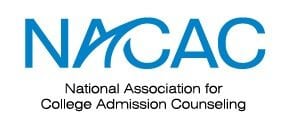College admissions can be a seemingly daunting task for both students and families. Not only is the process long and confusing, it’s also riddled with thoughts of doubt. Do I know enough? Am I good enough to get into the schools I want to?
College admissions can be a long, intense, and stressful time for students full of questions without answers – where do I want to go to school?
How do I make a “college list” of my top choices?
What constitutes a great college for me?
What kind of information do I need to apply to my list of schools?
When do I apply for college?
What other supplemental papers, awards, accolades, or information do I need to gather to apply?
How do I know how to pay for school?
What is FAFSA?…… and the list goes on?
There are so many different things that go into simply finding your top colleges and applying to see if you can gain a spot in their fall freshman class.
So what do colleges look for in students when they are deciding who to admit into their programs and school besides the traditional admissions rubric?
There are so many colleges out there, with many different areas of study, offering so many different experiences for students – so there is no way to compile a top list of things that all colleges look for when looking at students during admissions processes. But we can give you some great takeaways to help you with any college you apply for (spoiler alert – it’s more than just test scores and essays!)
First, colleges want to look to see if you are ready to be successful both in college and after you graduate.
This looks like challenging courses, AP work, extracurricular activities, memberships to clubs and groups, and other extracurricular activities. While you don’t need an entire resume of advanced activities, a rounded list of other things you participate in besides school means you’ve gone out looking for ways to better yourself and your community.
A lot of students have courses and AP work on their college admissions resume, but you can still diversify your very own admissions resume by looking for ways to volunteer, help others, learn challenging skills, and more.
Don’t forget that colleges also want authentic candidates so adding extracurricular activities is great for your college admissions resume, but don’t just do it to add fluff. Choose things that align with your desires and interests. College admissions departments see a lot of applications and can likely tell a difference between who adds extracurricular activities just because and those who truly are participating in these activities because they want to.
Second, they want to make sure you are showing enthusiasm for school and you aren’t just applying for colleges and filling out forms.
You can visit your school (or virtually visit a school too!) and then apply for admissions if it’s a good fit for you. This way you can see what the school looks like and get a feel for the campus. You can also do some researching on a colleges website to get a feel for the college campus culture. Colleges want to make sure that students who attend will fit in well and add value to the campus overall – so it’s important to make sure you find and apply for schools that match not only your career path but also your idea of what your college experience will look like.
Some colleges are very big on their college life and have a multitude of college activities on campus at any given time. They pride themselves on the experience that students get when they attend their college (think OSU, University of Michigan, Yale, University of Texas). It’s a different feeling – more like a small town full of your peers. It’s important to get a feel for this type of school and a great way to do that is to virtually visit and read up on colleges around the country.
Other colleges are very proud of their stringent academic standards and programs. While they still have great campus activities and a great culture, students applying know their college experience will be different.
Checking out social media, websites, signing up for email lists, and taking virtual tours of college campuses show interest in schools you want to attend.
Third, go the extra mile with any additional work or suggestions when applying for college.
Consider writing an optional essay (especially if writing is a strength of yours). You can find ways to expand on your extracurricular activities. Talk about the volunteer work you did in-depth, especially if it directly aligns with your studies. Use this opportunity to show your dream school why you are a great candidate and how you can add to their college experience and environment.
Get a few letters of recommendation from a variety of different sources and make sure to send those along with your application process. Teachers, a boss, a volunteer coordinator, or someone you know personally that isn’t related to you all work well for recommendations. If the college doesn’t ask for more information than necessary, these are still nice to have to send if requested at a later date.
If you can chat or (virtually) meet with faculty members, email with the admissions department, or engage with college admissions team members at open houses/fairs, you’ll be well on your way to wowing your choice colleges. These are all ways to go above and beyond normal admission to give you a leg up and make a lasting impression on your favorite schools.
While there is no magic way to know what each and every college admissions department is looking for, you can make an impact on every college admissions department with our tips.
Many colleges are moving more toward a holistic approach to reviewing applicants so having a variety of recommendations, going the extra mile with extra essays and admissions work, and showing off the well-rounded person you are really can give you a better chance at getting into your dream colleges.




